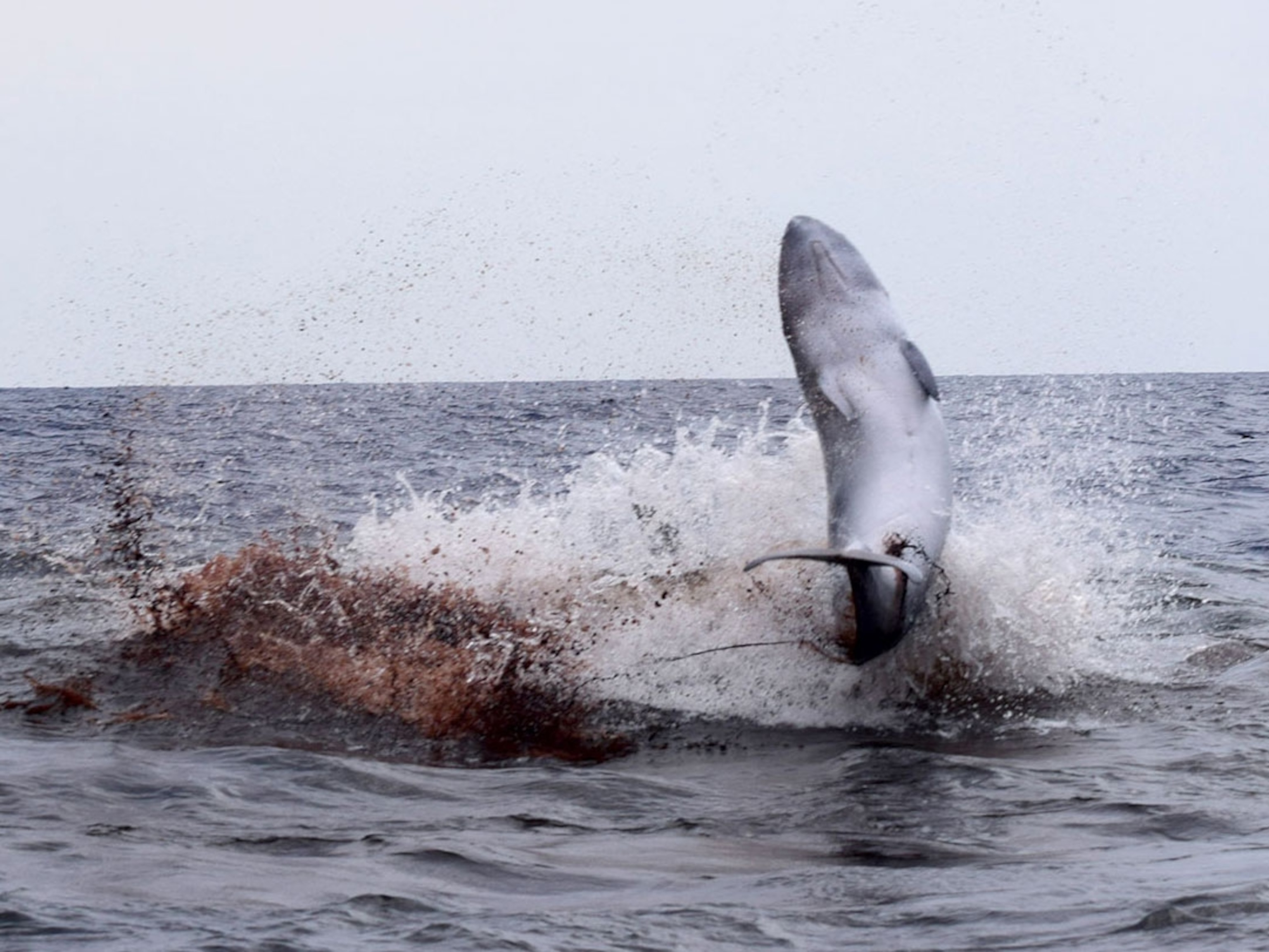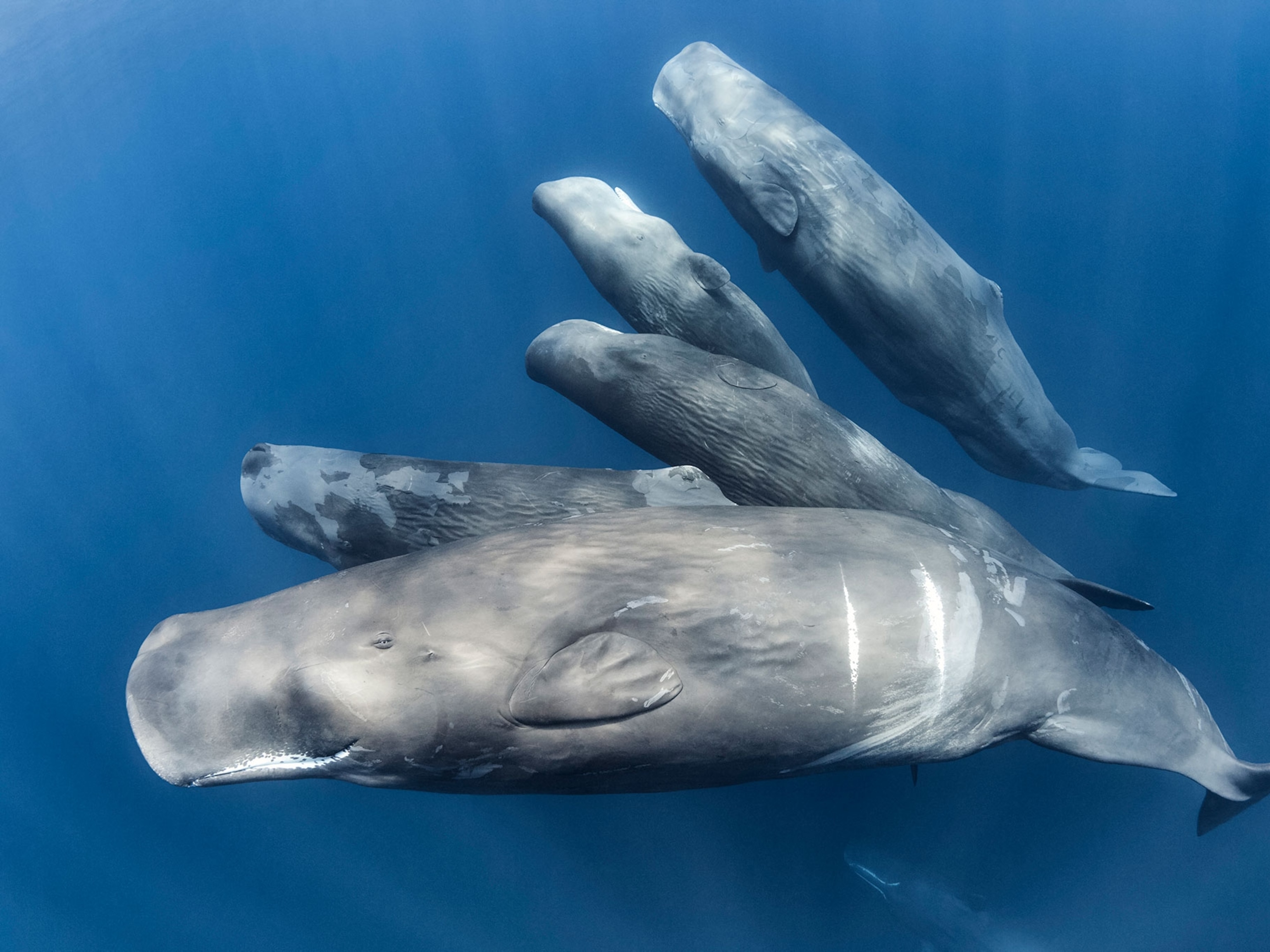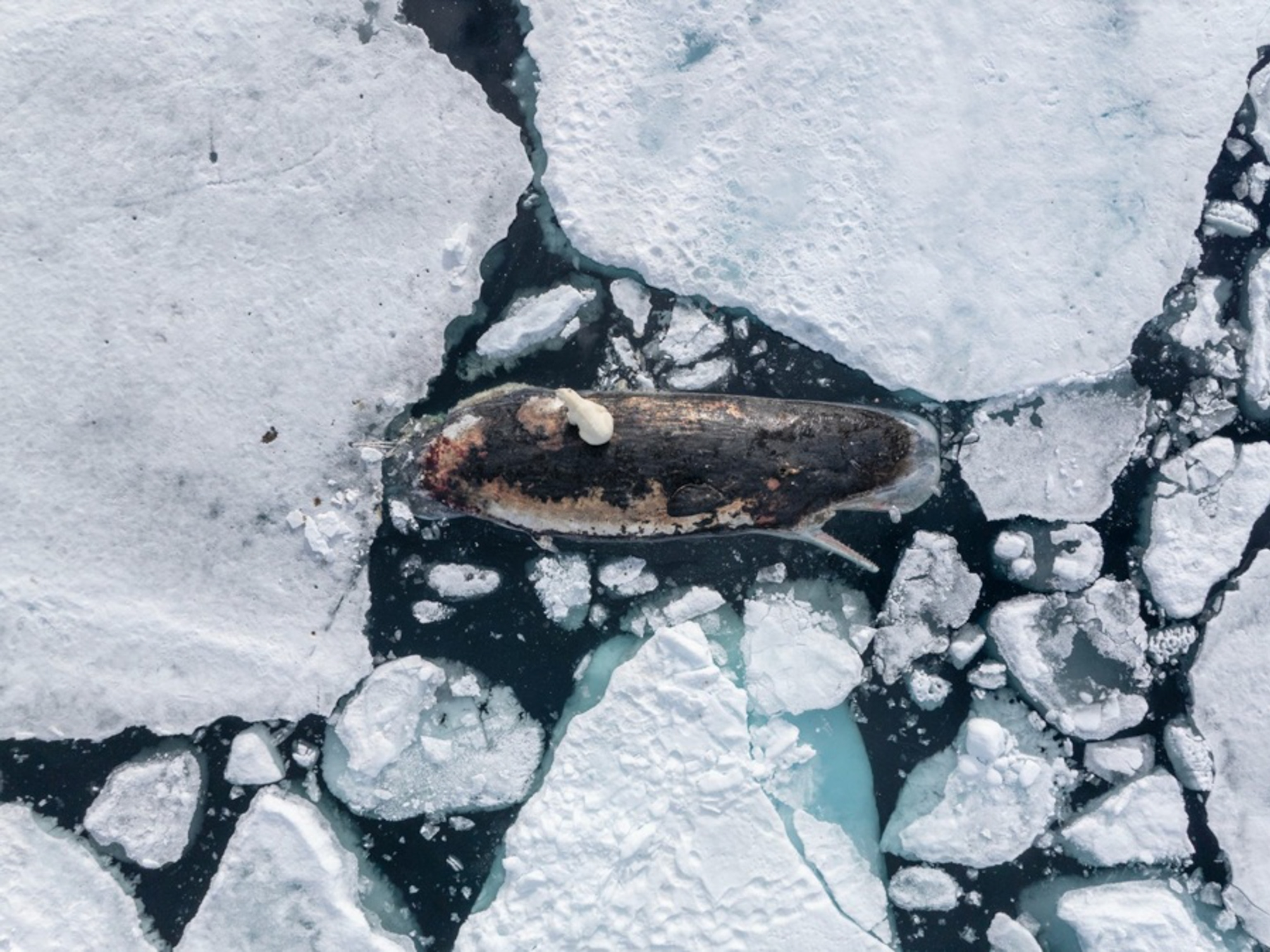
Space Sperm Produces Healthy Baby Mice
If the results hold up, the experiment may be a step toward understanding how well humans will be able to reproduce off-world.
After hurtling around the planet for nine months, freeze-dried mouse sperm exposed to the harsh environment of space have successfully produced litters of healthy baby mice, researchers report today.
While not entirely surprising to medical experts, the result is good news for those thinking about whether assisted reproductive technologies could be used to make future space babies if and when humans begin populating worlds beyond this one. (See "Elon Musk: A Million Humans Could Live on Mars By the 2060s.")
Actually having sex in space is a simple Newtonian physics problem that may or may not have already been solved (try getting someone to admit it). The tricky part is that people and animals in space are exposed to both reduced gravity and high-energy cosmic particles that can easily damage genetic material.
How the reproductive machinery that turns sperm and eggs into organisms deals with those conditions is a mystery from start to finish, says Kris Lehnhardt, a physician at George Washington University who specializes in emergency and extreme environment medicine.
“We really don’t know any of the things that we need to know to say that human reproduction in space is going to be successful or safe,” he says. “It’s not been studied in much detail.”
The new mouse study, described in the Proceedings of the National Academy of Sciences, not only suggests that space sperm can survive and be viable, but also offers some insight into future fertility.
“It’s a nice, well-designed study,” says Joe Tash of the University of Kansas Medical Center. But astronauts will face an even more intense radiation environment in deep space, which is an important caveat to consider when interpreting the study’s conclusions.
Space Pups
On Earth, everything alive evolved within the framework of gravity and under the protection of the planet’s magnetic field, which deflects most of the high-energy cosmic particles that hurtle through the cosmos. In deep space, on the moon, or even on Mars, gravity is much weaker, and radiation is much more of a danger.
So far, scientists have studied how a handful of organisms reproduce in space, including rats, fish, salamanders, and sea urchins. The results are mixed: Rats didn’t manage to produce pups at all during a 1979 experiment conducted on the Russian Cosmos 1129 satellite. While sea urchin sperm also didn’t do so well, fish, fruit flies, and nematodes successfully reproduced.
With those tidbits in mind, developmental biologist Teruhiko Wakayama, who once wanted to be an astronaut, set out to investigate whether assisted reproductive technologies could eventually be used to make baby mice in space.
“We found that only a few studies were performed about mammalian reproduction in space, and most of them showed no clear results due to the difficulty of taking the mice or rat into space,” says Wakayama, of Japan’s University of Yamanashi.
Wakayama specializes in domestic animal reproduction and has previously shown that freeze-drying mouse sperm could produce normal mouse pups on Earth. But when he and his colleagues stored mouse sperm in a chamber that simulated microgravity, it didn’t produce as many pups as expected.
“We very much wanted to perform a real space experiment,” Wakayama says. So the team designed an experiment, nicknamed Space Pup, to test the effects of actual space travel on mouse sperm cells.
After extracting spermatozoa from several mice, the team freeze-dried the cells and sent them to the International Space Station in August 2013. Freeze-drying helped the sperm stay stable during the several days surrounding their rocket ride into Earth orbit.
Then, tucked into a freezer set at -95 Celsius in the station’s Japanese module, the freeze-dried sperm stayed in space for 288 days, or roughly nine months. Over that time, a radiation monitor attached to the storage box recorded radiation levels roughly a hundred times higher than those on Earth’s surface.
In May 2014, the spermatozoa hitched a ride back home via a SpaceX rocket, and Wakayama and his colleagues began their investigations.
Unsurprisingly, the genetic material in the sperm heads had been broken apart and damaged by radiation. Flying 249 miles above Earth, the space station is vulnerable to more high-energy particles, and long-term exposure to such cosmic radiation is one of the chief concerns plaguing long-duration spaceflight.
“The radiation exposures that are reported in the paper are nowhere near the level of the radiation exposures that are going to be experienced once we travel beyond the protection of the Van Allen belt,” Tash says, referring to another layer of radiation shielding that’s wrapped around Earth and that envelops the ISS.
But the spermatozoa weren’t damaged beyond repair. Wakayama and his colleagues injected the space sperm directly into mouse eggs, then implanted the fertilized eggs into female mice. The results: normal, healthy litters of space pups. Patterns of gene expression in some of those pups, measured shortly before birth, were not significantly different from those in pups grown from freeze-dried sperm kept on the ground, the team reports in their paper.
The paper also states that, when some of those pups had matured into adults and mated with one another, they produced normal babies, as well. According to the team, this suggests that there are no lasting fertility problems associated with space-based sperm.
Sperm Libraries
If the findings hold up, they represent an intriguing step along the road to studying what we really want to know about, which is whether humans in space can also give birth to healthy humans.
This experiment is “one that certainly hasn’t been done before in the progression of the reproduction in space studies,” Lehnhardt says. “Their concept, or their thought is, by freeze-drying the sperm, they can basically stop the metabolism of the sperm and they can, in some ways, minimize some of the radiation damage that’s occurring to the sperm, because they’re basically frozen in time.“
Next, Wakayama and his team plan on sending some fertilized mouse eggs to the ISS and testing whether those eggs can grow into blastocysts, an extremely early stage in development where the growing mass contains several hundred cells.
And next year, Tash will be investigating whether spacefaring, cryopreserved human sperm still exhibit the characteristics needed for successful in vitro fertilization.
Ultimately, Wakayama and his team suggest that once the technology for storing biological samples in space is perfected, libraries of sperm from various earthly critters could be kept on board a spaceship or in a lunar lava tube to act both as a failsafe in case of total catastrophe on this planet and as a recipe book for producing familiar forms of life beyond Earth.







